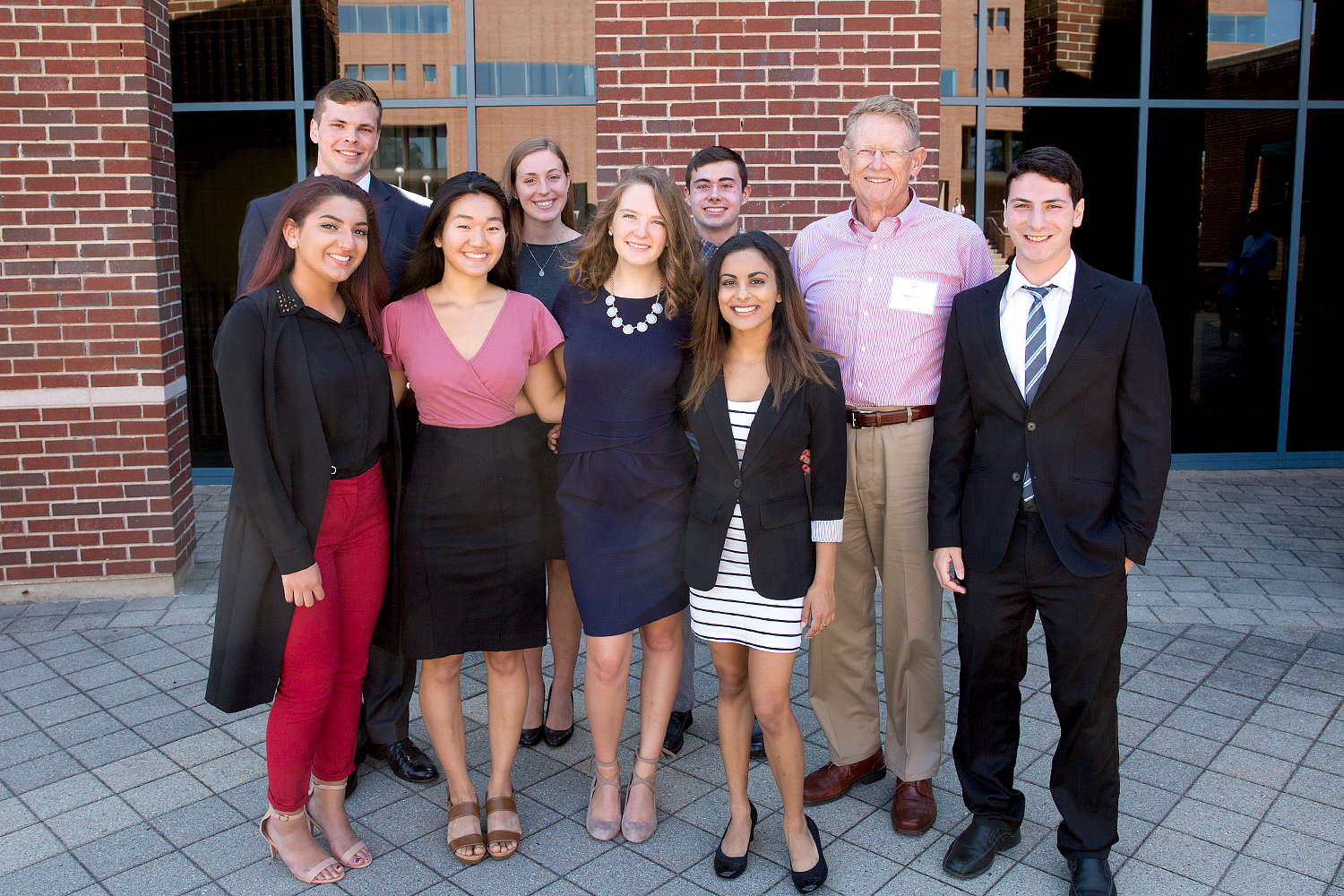Susan Naseri ’20 (CLAS) and Van Augur ’20 (CLAS) were fresh out of high school when they applied to do research as Holster Scholars at UConn – but don’t let their age fool you. These ambitious sophomores from the College of Liberal Arts and Sciences spoke at the Holster Scholar Project symposium in Konover Auditorium on Sept. 25. Along with six other students, including four others from CLAS, they shared their original work on a wide range of emerging topics, from cancer to plastic to aging.
Their passion animated the auditorium and reflected the standards of the Holster Scholar Program, which supports curious first-year honors students in independent research projects the summer following their freshman year.
Naseri, a political science and human rights double major mentored by Alan R. Bennett Honors Professor of Political Science Jennifer Sterling-Folker, focused on an issue close to home: refugees living in the Nutmeg State. Her research looked at five different organizations that function to assimilate or acculturate – which means to adopt the cultural traits or social patterns of another group – refugees in Connecticut. Some of them, such as the Catholic Charities Migration; Refugee and Immigration Services; and Integrated Refugee and Immigrant Services operate under the U.S. Refugee Act of 1980, and are required under law to provide furnished apartments and other services that help new arrivals get employed and on their feet again, said Naseri.
But Naseri wanted to know to what extent these programs contribute to helping refugees feel that, culturally and community-wise, they have found a true home in Connecticut and in the U.S. That’s where the only institution in Connecticut that helps refugees on a volunteer basis came into play: The American Place at the Hartford Public Library (HPL). Naseri found that the HPL did more than the other institutions in terms of aiding the acculturation process for refugees by holding more cultural events and supporting multiculturalism. For instance, the Library offers Somalis space to teach their children their own language; hosts Nowruz (New Year) and Eid celebrations; and set up an art exhibition for women called “Demystifying the Hijab.” But despite HPL’s efforts, Naseri concluded, most services are focused on practical needs.
“With limited funding and space, service programs do focus more on assimilation rather than acculturation,” she said.
Van Augur, a political science major, also presented his work at the symposium, focusing on interests he’s had from a very young age.
“Politics and law is something I’ve always had an interest in, starting in middle school,” he said.
His research under the mentorship of Professor of Political Science Paul Herrnson focused on super PACs, or political action committees. These campaign finance organizations make independent expenditures in federal elections, and are not associated with any political party or candidate. Their implications are controversial, as they have access to unconventional sources of finance such as corporations, trade associations and more, as well as the right to receive unlimited funds, according to Auger.
His project, which investigated whether support of super PACs skewed across different demographics, uncovered that more men donated to super PACs than women from 2010-2014, and the majority of funds come from large organizations that maintain their own interests rather than those of the public.
“We found that super PACs don’t really represent the American people,” Augur said.
Director of Enrichment Programs Vin Moscardelli closed the event by thanking the mentors of the Holster Scholars Program.
“I have a great time working with these students, but ultimately it’s that mentor-mentee relationship that really drives their advancement, and really helps these students turn into the generators of knowledge that they’re becoming,” he said.
In addition to Naseri and Augur, the 2017 Holster Scholars comprise mathematics and statistics major Maddie Gastonguay ’20 (CLAS), molecular and cell biology and anthropology major Kanika Malani ’20 (CLAS), chemistry major Mason Witko ’20 (CLAS), biomedical engineering and Spanish major Ariane Garrett ’20 (ENG, CLAS), civil engineering major Xinyu Lin ’20 (ENG), and materials science major Andrew Levin ’20 (ENG).



